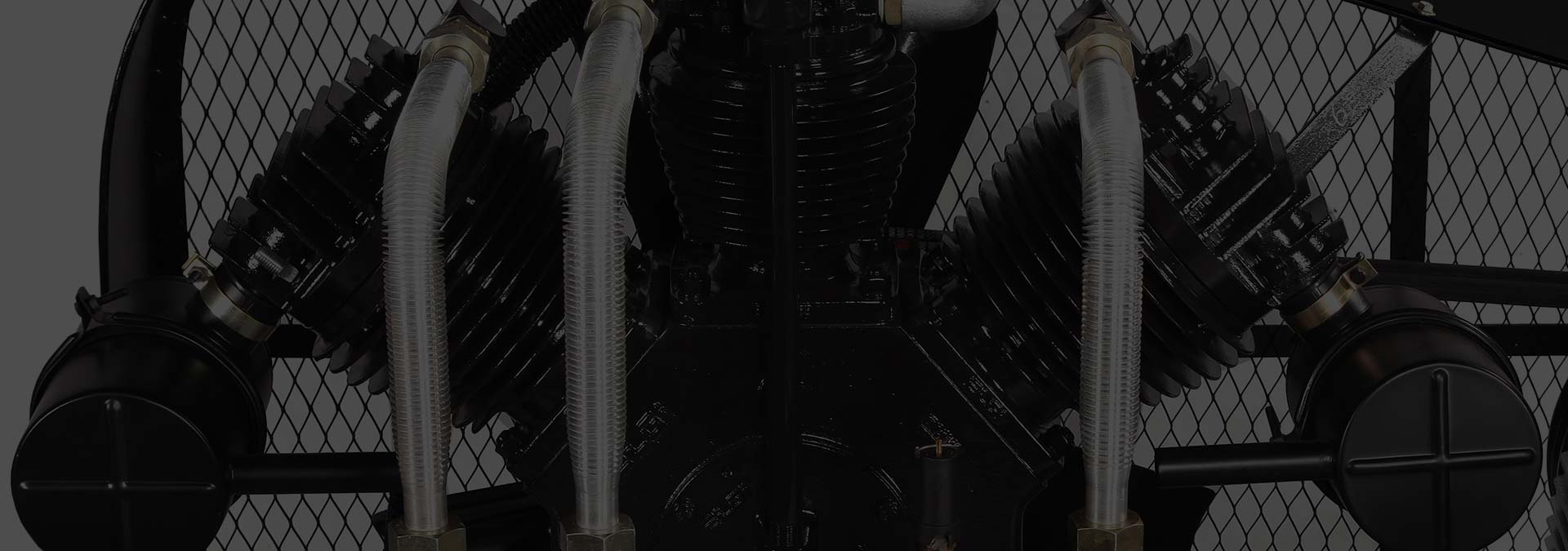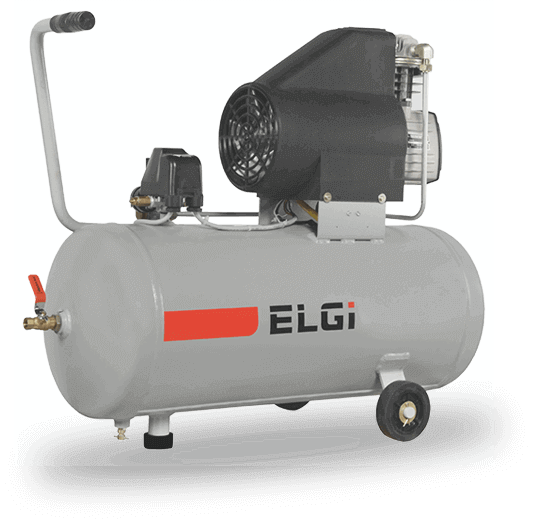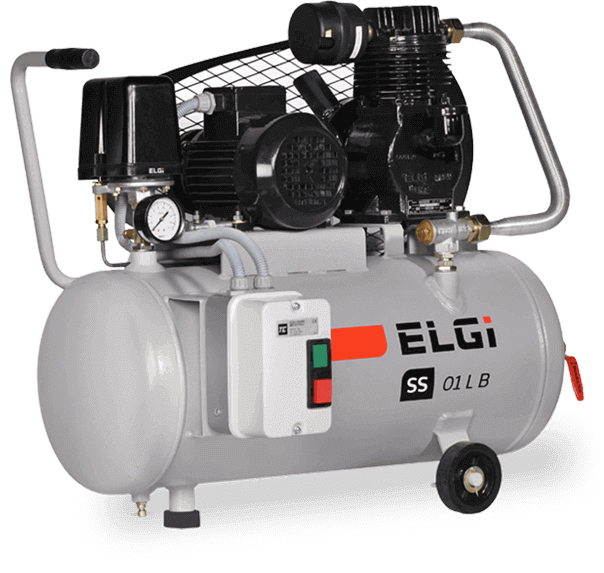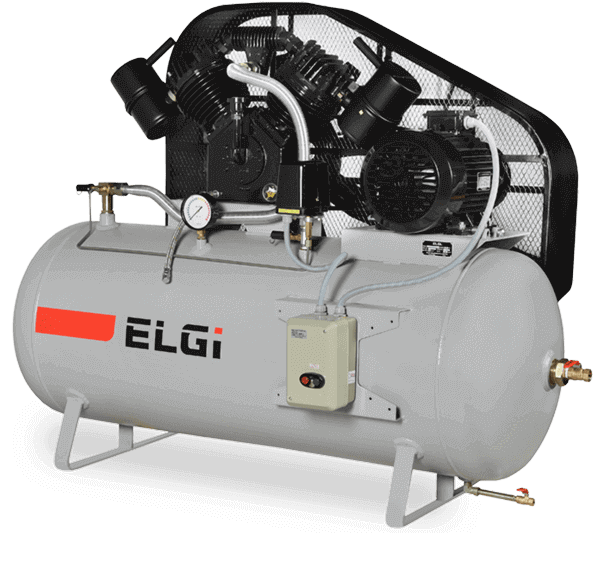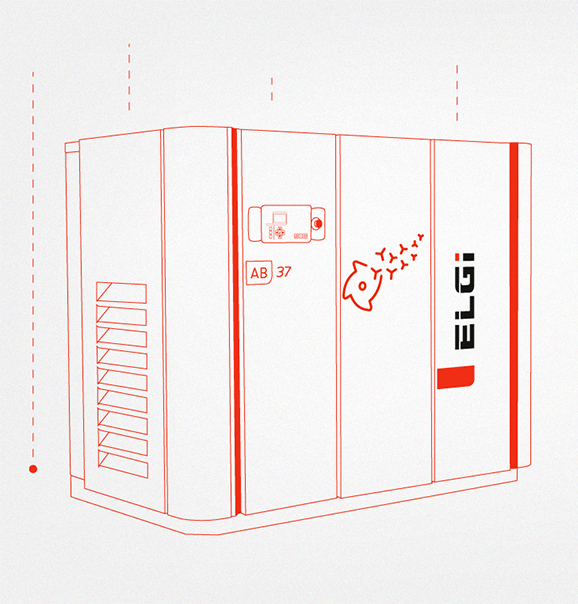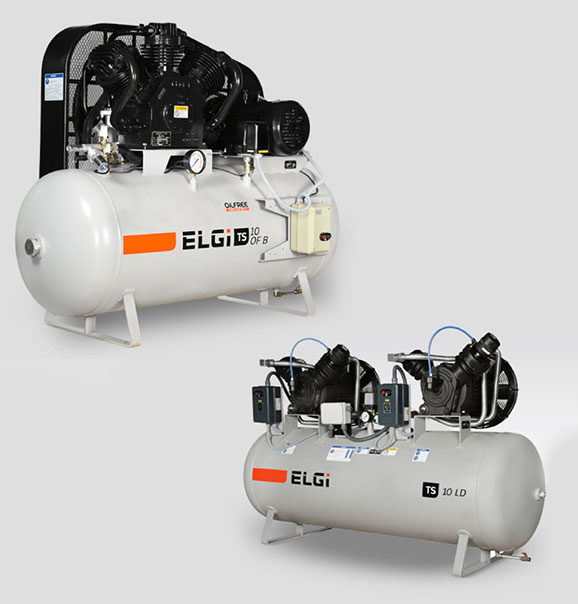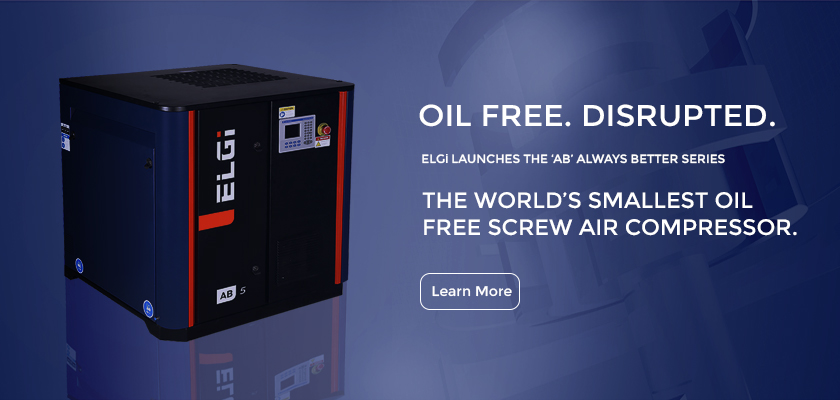Reciprocating Air Compressor, also known as a piston air compressor, is a type of positive displacement type of air compressor in which air is sucked into a chamber and compressed with the help of a reciprocating piston. The basic working principle of a piston type air compressor is similar to that of a crankshaft piston. The air flows into the compressing cylinder after passing through the air filter and via a suction valve. The air is then compressed using a crankshaft and a piston and leaves through a discharge valve. The compressed air is then stored in a storage tank.
There are four kinds of reciprocating compressors
Single Acting Reciprocating Air Compressor
Only one side of the piston is used for the compression of the air, and the other side is connected to the crankshaft and not used for the compression.
Double Acting Reciprocating Air Compressor
Both sides of the piston are used for the compression of the air. As the piston moves, one side compresses the air while the other side sucks in more air from the atmosphere.
Single-Stage Reciprocating Air Compressor
In this air compressor, the compression of the air takes place in a single cylinder.
Double Stage Reciprocating Air Compressor
In this type of compressor, the compression of the air takes place in two stages, i.e., the air is first compressed to some extent in one cylinder and is then transferred to the second cylinder for further compression.
Reciprocating air compressors from ELGi offer numerous advantages that complement the requirements of Africa’s industries. The key advantages of ELGi piston type air compressors are as follows:
- Designed for continuous duty
- Deep finned cast iron cylinder
- Low expansion aluminium alloy piston
- Forged steel crankshaft
- Sturdy, robust cast iron crankcase
- Optimal operating speed
- Aluminium cooler tubes and aerodynamically designed fan for efficient cooling
- Air receiver, conforming to ASME design
- Pressure relief valve for extra safety
- Automatic start and stop loop control
ELGi has a wide variety of single and double-staged reciprocating air compressors to suit the needs of Africa’s industries. The compressors are designed for continuous duty application.
ELGi has also adapted a dry crankcase that is devoid of oil. These new generation ELGi compressors significantly reduce operating costs and provide high quality Oil free air that eliminates the usage of expensive downstream filters.
These reciprocating air compressors are ideal for customers looking for significant impact on power cost, very low noise capacity, small air demands, and long-running capacity of more than 8 hours a day. Africa boasts of formidable automobile, textile, food and beverages, paint, plastic manufacturing, CNC operation, and metal fabrication industries, all of which can benefit from the reciprocating air compressors.
Before buying a reciprocating compressor, few critical factors should be considerations to ensure optimal performance, efficiency, and cost-effectiveness. Here’s a step-by-step guide to help you make an informed decision:
Identify Your Application Requirements
Understand the specific requirements of your application. Determine the required compressed air flow rate (CFM or SCFM), operating pressure (PSI or bar), duty cycle (intermittent or continuous operation), and any other specific needs such as oil-free air for certain industries like food and pharmaceuticals.
Consider the Environment
Assess the compressor’s installation environment, including available space, ventilation, and noise limitations. Ensure that the selected reciprocating compressor can fit in the designated space and operate at acceptable noise levels for your facility.
Evaluate the Power Source
Determine the power source available in your facility. Consider the power requirements of the reciprocating compressor and ensure that the electrical supply or gas capacity meets the compressor’s needs.
Check the range of ELGi reciprocating air compressors for sale and contact us if you have any questions on price and sizing.
Reciprocating compressors come in both single-stage and two-stage variants. Single-stage compressors are suitable for low to medium pressures, while two-stage compressors are better for high-pressure applications. Both types of reciprocating compressors play a crucial role in various industrial applications, offering distinct advantages depending on the pressure requirements. Choose the type that matches your required pressure level.
For applications where air quality is critical, such as in the food, pharmaceutical, or electronics industries, consider oil-free reciprocating compressors to avoid any risk of oil contamination.
Evaluate Compressor Efficiency
Look for energy-efficient models with low operating costs. Compressors with better energy efficiency can lead to substantial savings over time.
Maintenance and Serviceability
Consider the ease of maintenance and availability of service and spare parts. Regular maintenance is essential to keep the reciprocating compressors running at peak performance and prolong their lifespan.
Check Compressor Reliability and Longevity
Choose a reputable brand known for producing reliable and durable compressors. Read customer reviews and seek recommendations from industry experts to assess the compressor’s performance and longevity. Explore ELGI reciprocating compressors for sale.
Consult with Experts
If you’re unsure about the right compressor for your specific needs, consult with our experienced professionals. We can provide valuable insights and help you select the most suitable compressor for your application.
Compare Quotes and Warranty
Obtain quotes from different suppliers and compare the compressor ’s features, performance, and warranty. Consider the long-term costs, including maintenance and operational expenses, to make an informed decision. Contact us now to buy reciprocating compressors and get the best deals on these essential industrial machines.
Buy reciprocating compressors and seize the opportunity to acquire high-quality, efficient, and reliable compressors for your industrial needs.


